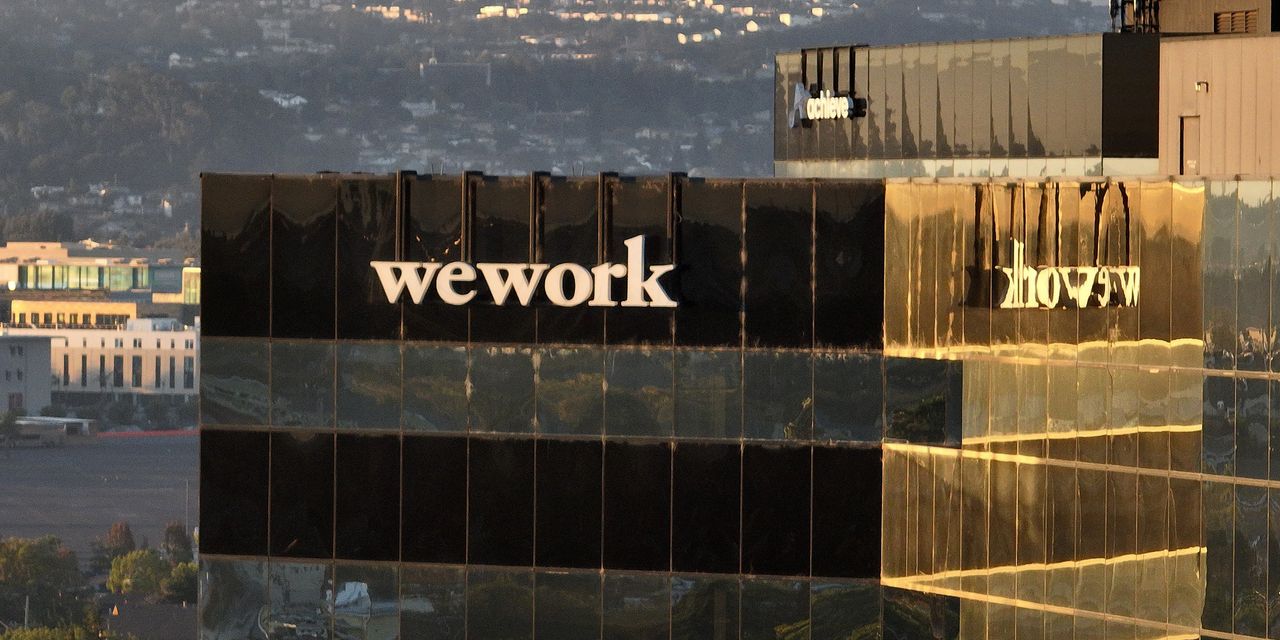WeWork Inc.’s high negative debt-to-equity ratio suggests that the troubled co-working-space provider’s bankruptcy is looming, according to credit-monitoring and risk-management company Creditsafe.
WeWork
WE,
has a total shareholder equity of negative $3.56 billion and the company’s total debt is $2.9 billion, bringing its debt-to-equity ratio to -81.7%, Creditsafe said. “When a company’s debt-to-equity ratio is in the negative, this means the company’s liabilities exceed its assets,” Ragini Bhalla, head of brand and spokesperson for Creditsafe, told MarketWatch. “This would be considered a sign of high risk, and is likely to be an incentive to file for bankruptcy sooner than later.”
On Tuesday, the Wall Street Journal reported that WeWork plans to file for bankruptcy as early as next week. WeWork’s stock plunged 46.5% on Wednesday.
In August, WeWork said that “substantial doubt” existed about the company’s ability to continue as a going concern, citing its losses and projected cash needs, as well as increased member churn and current liquidity levels.
Set against this backdrop, Creditsafe’s Bhalla noted that WeWork’s cash flow is in the negative. In the first six months of 2023, WeWork reported negative cash flow from operating activities of $530 million and a net loss of $696 million.
Creditsafe also weighed the potential impact of a WeWork bankruptcy on the company’s suppliers. WeWork’s Days Beyond Terms (DBT), which is how many days past payment terms it typically takes to pay invoices, has increased from 67 in August to 68 currently, said Bhalla, citing Creditsafe data. “The fact that it takes WeWork over two months to resolve late payments is a major cause for concern,” she added. “It indicates there’s a larger cash flow problem behind the scenes.”
Related: WeWork flags ‘substantial doubt’ about its ability to stay in business
Exacerbating this problem is that WeWork’s delinquent payments, those 91-plus days late, increased by 631.82% over the past 12 months, according to Creditsafe. “For any suppliers and vendors who might be relying on those payments, this could have a domino effect on their own cash flow,” said Bhalla.
WeWork, however, has pushed back against the data, which it says are not an accurate portrayal of its invoice payments. “Vendors are an important part of our business,” a WeWork spokesperson told MarketWatch. “Our invoice processing has continued according to our agreements and in a timely manner.”
Shares of WeWork have fallen 97.9% in 2023, compared with the S&P 500 index’s
SPX
gain of 10.4%.
Read the full article here













Leave a Reply